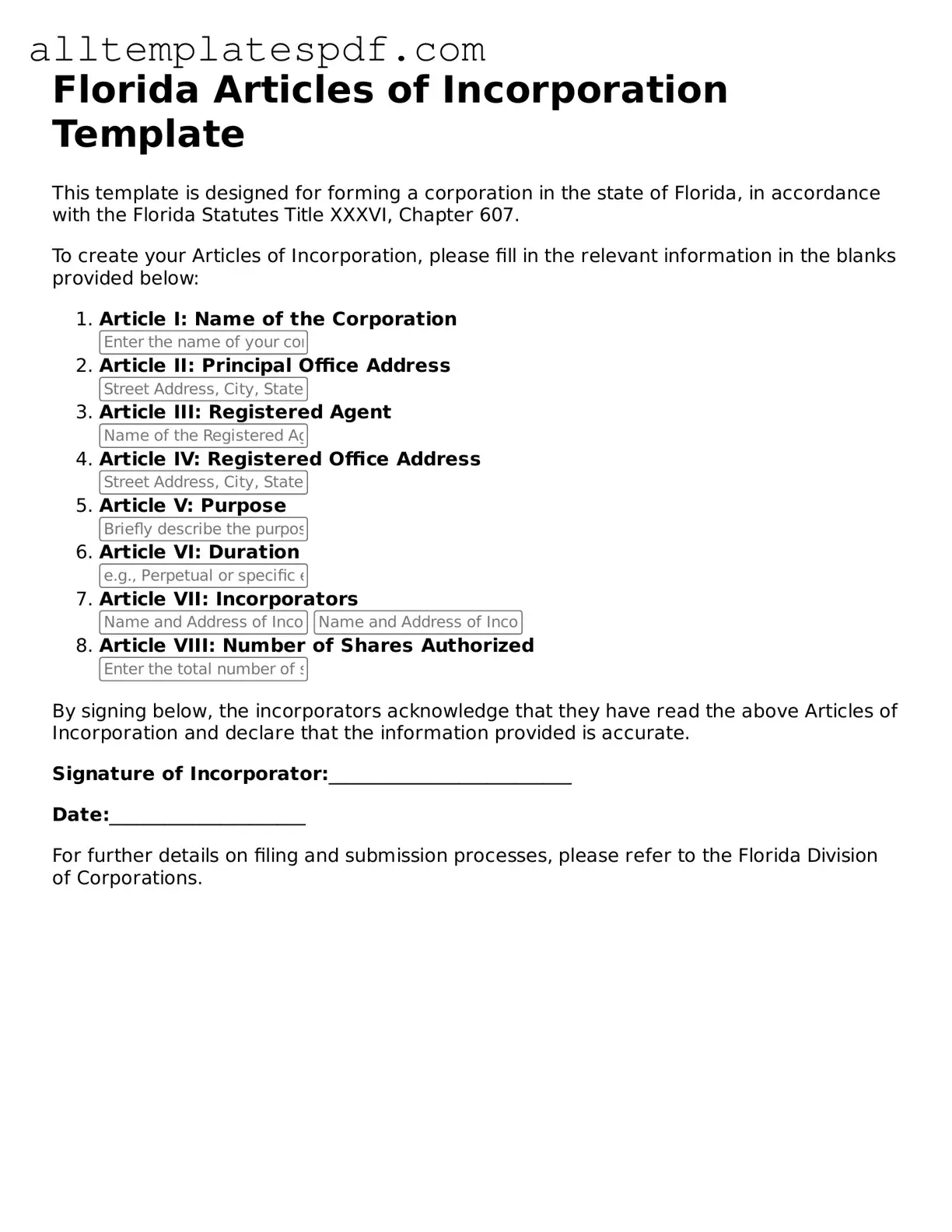Filling out the Florida Articles of Incorporation form is a critical step for anyone looking to establish a corporation in the state. However, many individuals make common mistakes that can lead to delays or complications. One frequent error is failing to provide a clear and accurate name for the corporation. The name must be distinguishable from existing entities registered in Florida. If the name is too similar to another corporation, the application may be rejected.
Another mistake involves incorrect designation of the corporation's purpose. The purpose statement should be specific and align with the activities the corporation intends to engage in. Vague or overly broad descriptions can lead to questions from the state and may necessitate revisions.
Many applicants neglect to include the required number of directors in the Articles of Incorporation. Florida law mandates that a corporation must have at least one director. Omitting this information can result in processing delays or rejections.
Inaccurate information regarding the registered agent is also a common issue. The registered agent must have a physical address in Florida and be available during business hours. Providing a P.O. Box or an out-of-state address can invalidate the application.
Some individuals overlook the importance of including the correct incorporation date. The date should reflect when the corporation intends to commence operations. If this date is not specified or is incorrectly filled out, it can create confusion regarding the corporation's status.
Another frequent oversight is failing to sign the Articles of Incorporation. The form must be signed by the incorporator, and a missing signature can result in the form being returned. Additionally, the title of the signer should be included to clarify their role within the corporation.
Applicants sometimes make errors in the filing fee. Each type of corporation may have different fee structures, and submitting an incorrect amount can delay the processing of the application. It is crucial to verify the current fees before submission.
Many people also forget to review the document for spelling and grammatical errors. Such mistakes can lead to misunderstandings about the corporation's name or purpose. A thorough review can help ensure clarity and professionalism in the application.
Failure to comply with additional state requirements can also be problematic. For example, if the corporation plans to engage in specific regulated activities, additional licenses or permits may be necessary. Neglecting to address these requirements can hinder the corporation's ability to operate legally.
Lastly, some applicants submit the form without checking for any updates to the filing process or requirements. Regulations can change, and staying informed about the latest guidelines can prevent unnecessary complications. Proper preparation and attention to detail can facilitate a smoother incorporation process.

